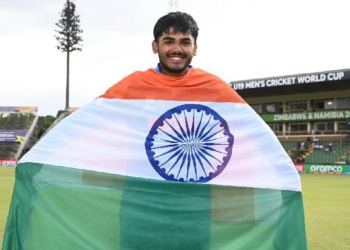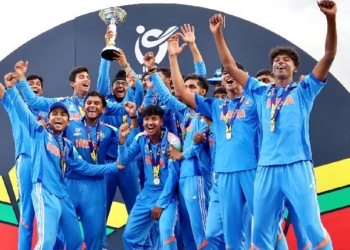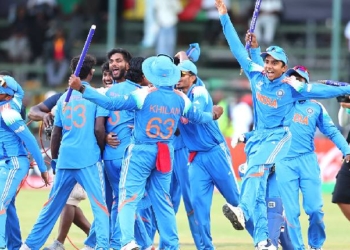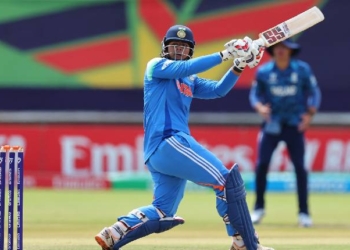New Delhi: In its ongoing efforts to speed up the pace of play in international cricket, the International Cricket Council (ICC) announced on Monday that it will start the stop-clock trial from the opening men’s T20I between the West Indies and England on December 12 in Barbados.
As per ICC, the stop-clock trial will happen in full-member men’s ODI and T20I matches, which comes to approximately 59 fixtures between December 2023 and April 2024. The trial was earlier approved by the chief executives committee which met in Ahmedabad last month.
“The stop clock trial in white-ball international cricket follows the introduction of a successful new playing condition in 2022, which resulted in the fielding team only being allowed four fielders outside of the inner circle if they were not in a position to bowl the first ball of their final over in the stipulated time.”
“We are continually looking at ways to speed up the pace of play across international cricket. The outcomes of the stop clock trial will be assessed at the end of the trial period,” said Wasim Khan, ICC General Manager – Cricket, in a statement.
The stop clock will restrict the amount of time taken between overs, meaning that the bowling team will need to be ready to bowl the first ball of their next over within 60 seconds of the previous over being completed.
Failure to do so for the third time in an innings (following two warnings) will result in a five-run penalty being imposed against the fielding team. Earlier last year, the ICC introduced an in-match penalty in ODIs and T20Is for both men’s and women’s cricket to tackle the slow over rate issue.
As per the ruling, if the fielding team fails to start the final over by the stipulated time in an innings, they will have one fielder removed from outside the 30-yard circle and that fielder will come inside the circle.
Previously, the MCC World Cricket Committee in 2018, which included former men’s international cricket captains like Ricky Ponting, Sourav Ganguly and Kumar Sangakkara, had proposed the introduction of a ‘shot clock’ in an attempt to combat slow over-rates.
(IANS)
















